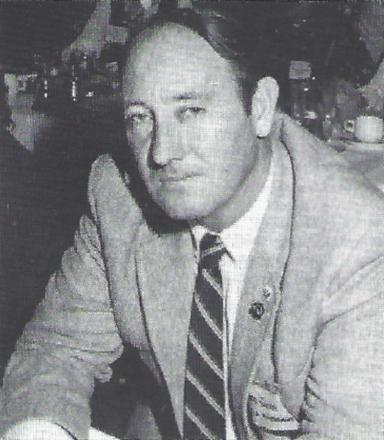
PEDALS No. 61, September 1996, page 20.
BOB Baker was elected as President of the SA Council of ICPA in March 1983, at the State meeting held at Kimba which was hosted by the newly-formed Pinkawillinie Branch. Later that year, he also became President of the North East Branch of ICPA.
Bob's leadership was the catalyst for great change. Immediately, the State Council began to hold regular quarterly meetings and all branches were encouraged to be represented at State level. State conferences became more formal and attracted guest speakers of quality eg the Director- General of the time, John Steinle, at the Port Augusta Conference in 1984. The CounciI itself became more formally structured- portfolios were allot ted, a position was created for a Publicity Officer and a constitution and policies were formulated etc. The profile of ICPA within educational circles was raised. ICPA was invited to be represented on many SA Education Department commit tees and other groups eg RICE. A great example of the value of this representation was Bob's input into the Working Party into Boarding Options in SA (there were no boarding options in SA at the time!!). This group and others like it in other States brought to the attention of the federal Government the desperate need for the lack of boarding options to be addressed. This resulted in the Hostels for Rural Students Program, which has provided generous grants for the provision of accommodation for isolated students Australia-wide.
Bob was also elected as the Chairman of the inaugural Correspondence School Council now the Open Access College Council. He and his wife Lyn travelled widely representing both ICPA and the Correspondence School Council at Conferences eg. the first National Distance Education Conference in Perth in 1984.
In 1985, Bob was forced to curtail his ICPA activities due to work commitments, but he returned the following year for a one year term as President of SA ICPA. He and Lyn hosted three or four very successful Kalabity Woolshed dances which raised several thousand dollars for the State Council of ICPA and the Correspondence School Council. At this time of high activity for him, he was elected to the federal Council of ICPA. His commitment and great knowledge of the Distance Education scene soon came to the attention of his fellow Federal Councillors and he was elected to the position of Federal President at the 1988 Federal Conference in Katherine. During this time he and Lyn lived firstly at Kalabity Station via Olary, in the North Eastern Pastoral region, then at Colona Station, Penong before moving to the south western area of Western Australia. While at Colona he was involved with the Far West Branch and came to understand the problems associated with small rural schools in SA.
Bob, like all good leaders, had great vision and an ability to communicate with all people, a trait which he used to the great advantage of ICPA in his dealings with politicians and bureaucrats of the highest standing. He was recognised as a formidable lobbyist both at federal and State level. During the years of his involvement with the SA Council (many would say as a result of his involvement), lCPA became recognised as a group with much to offer educational policy-makers. As a result, ICPA representation on groups such as the Working Party into Boarding Options and the Distance Education Advisory Committee brought ICPA to the coal-face of decision-making in SA.
Isolated children in Australia, are now reaping the benefits of the efforts of Bob Baker, who injected a huge degree of enthusiasm and professionalism into all the aspects of ICPA he was involved with and, at the same time, maintained the credibility that has been the cornerstone of the Association's beliefs and ideals since its inception.
Dot Sandland.






